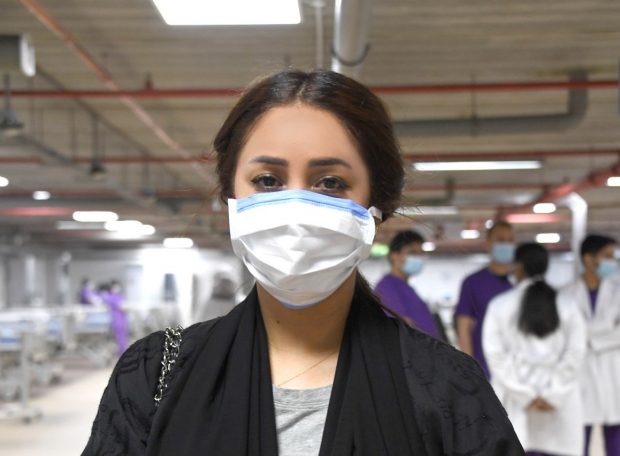
Facemasks must be worn properly, Health Director-General urges

KUALA LUMPUR: A facemask must be worn properly to be effective in preventing the spread of diseases, Malaysia’s Health Director-General Dr Noor Hisham Abdullah has said.
He said the facemask should cover the entire nose up to the chin, while leaving it around the forehead or neck, or having it only cover part of the nose and mouth was not appropriate, and in fact, posed a risk of contamination or infection.
“The use of a facemask is an important method to prevent the spread of respiratory diseases that are transmitted through viruses, including COVID-19,” he said, quoted by Malaysian news agency Bernama.
“It can be used either to protect healthy people from being infected, or to prevent infected people from infecting others.”
Prime Minister Muhyiddin Yassin on Monday said the government was considering making it obligatory to wear facemasks in public places following the COVID-19 threat, and further details would be announced once the relevant regulations had been finalised.
Those who do not have any symptoms should use a facemask when they are in a place where COVID-19 is widespread and social distancing is difficult to practice, for example, in public places and crowded environments.
People with respiratory tract issues, as well as those in high-risk groups such as the elderly and with a background of having chronic diseases, should use a surgical 3-ply mask in high-risk and crowded areas, he said.
According to Dr Noor Hisham, the World Health Organisation (WHO) also recommended the use of non-medical fabric type masks with three layers, where the inner layer is water-absorbent (hydrophilic) and the outer layer is made of a material that is water repellent (hydrophobic), which can limit contaminants in the environment from penetrating into the wearer’s nose and mouth.
“A middle hydrophobic layer made from synthetic nonwoven materials such as polypropylene or cotton can increase the filtration or resist respiratory droplets.
“The Ministry of Health would also like to remind the public that non-medical facemasks are not considered medical or personal protective equipment,” he said.
Non-medical facemasks should not be worn by children below the age of two, nor by those who have difficulty breathing, are unconscious, have a disability, or who cannot remove the facemasks on their own, he added.


